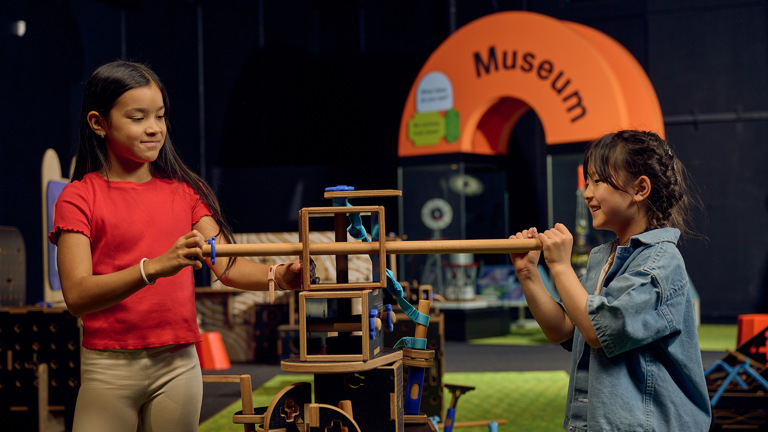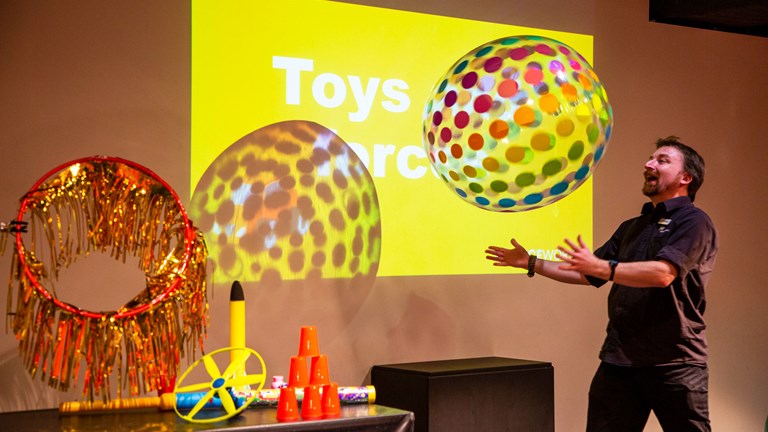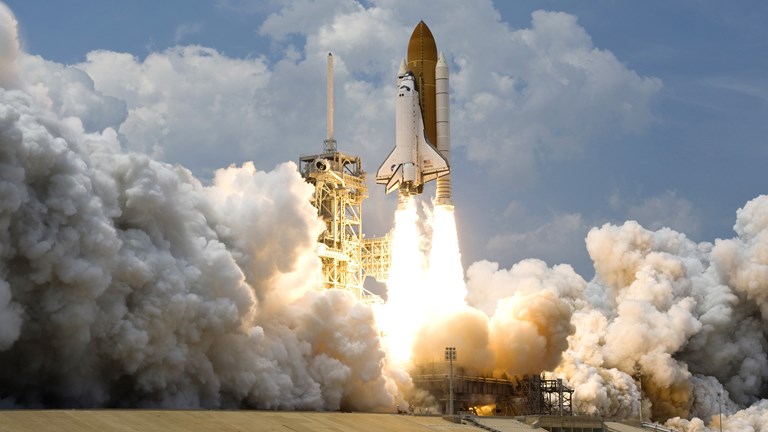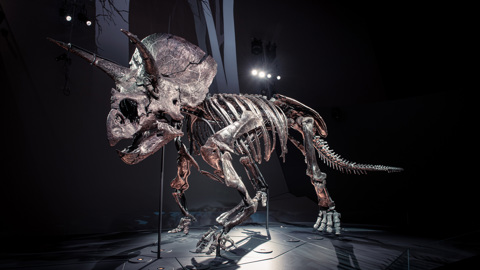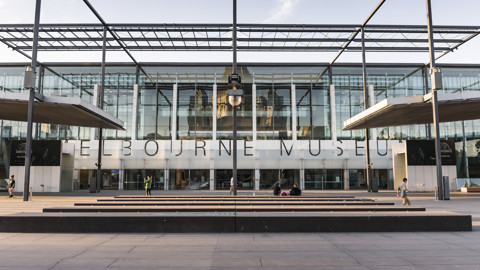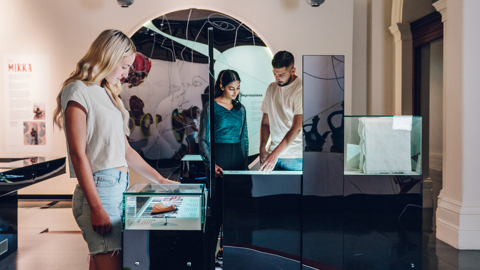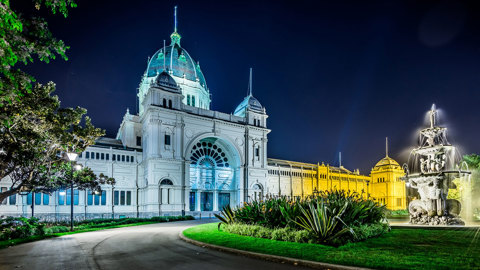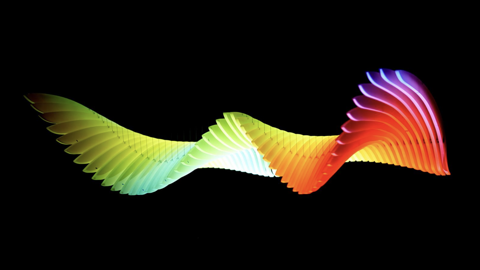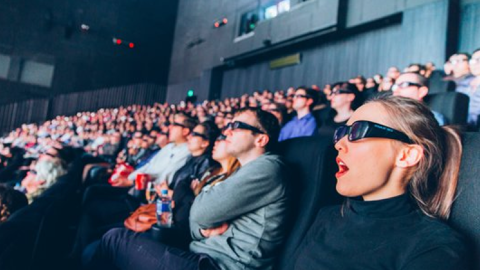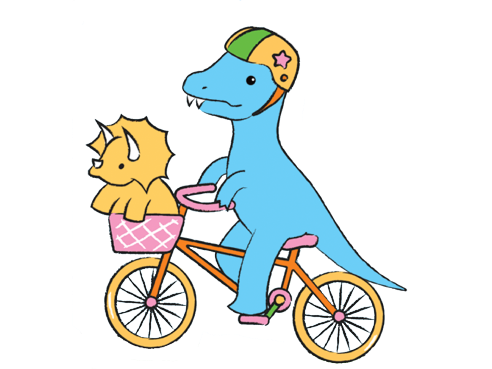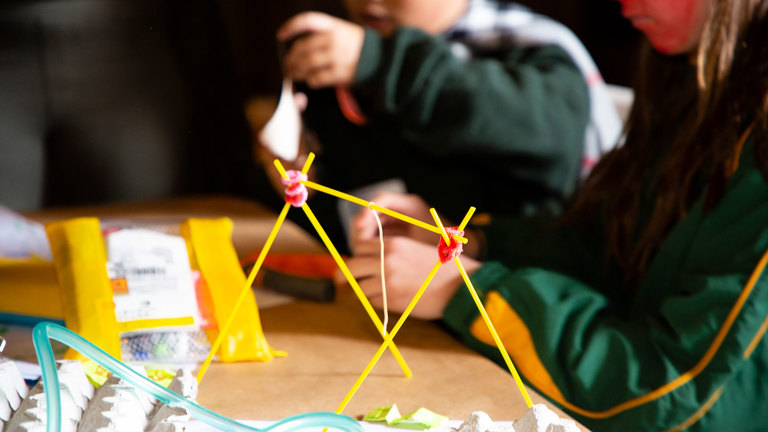
Future Cities: Designing Sustainability
- What
- Museum Staff-led
- When
- Term 3, Wednesday 16 August 10–3pm
- Duration
Curriculum links & Accessibility & Access Fund- Year level
- Years 3 to 8
- Cost
- Free for Catholic school teachers & students, supported by the Catholic Education Commission of Victoria.
- Booking information
-
Bookings
Complete the registration form
As the global population increases, more and more people are living in cities, and the world has limited resources. What does this mean for our future cities? Issues in the city include water shortages, rising temperatures, increased moving people and cargo, and pollution and waste. Might disruptive technology and intelligent design such as electric vehicles, renewable energy and batteries, 3D printing, re-wilding projects, urban greening, or Urban agriculture help?
Students meet experts to explore the possible future cityscapes and issues, as well as examine global examples of early interventions. They develop ideas and use technology to develop prototypes aimed at solving the issues to create sustainable and desirable cities.
Registration is required for the STEM Design Sprint 2023.
Where: The workshops are held in the Pumping Station at Scienceworks. For information on how to get here, visit Getting here and parking.
For more information, please contact Frazer Thorpe
-
Levels 4–6
Science
- Science as a human endeavour
- Biological sciences
- Physical sciences
Science Inquiry Skills
- Planning and conducting
- Recording and processing
- Analysing and evaluating
- Communicating
Design and Technologies
- Technologies and Society
- Technologies Contexts
- Creating Designed Solutions
- Critical and Creative Thinking
- Questions and Possibilities
- Reasoning
- Meta-Cognition
Personal and Social Capability
Self-Awareness and Management
- Recognition and expression of emotions
- Development of resilience
Social Awareness and Management
- Relationships and diversity
- Collaboration
Health and Physical Education
Personal, Social and Community Health
- Being healthy, safe and active
- Communicating and interacting for health and wellbeing
- Contributing to healthy and active communities
Movement and Physical Activity
- Moving the body
- Understanding movement
- Learning through movement
Levels 7–10
Science
- Science as a human endeavour
- Biological sciences
- Physical sciences
Science Inquiry Skills
- Planning and conducting
- Recording and processing
- Analysing and evaluating
- Communicating
Design and Technologies
- Technologies and Society
- Technologies Contexts
- Engineering principles and systems
- Materials and technologies specialisations
- Creating Designed Solutions
Critical and Creative Thinking
- Questions and Possibilities
- Reasoning
- Meta-Cognition
Health and Physical Education
Personal, Social and Community Health
- Communicating and interacting for health and wellbeing
- Contributing to healthy and active communities
Movement and Physical Activity
- Moving the body
- Understanding movement
- Learning through movement
Personal and Social Capability
Self-Awareness and Management
- Recognition and expression of emotions
- Development of resilience
Social Awareness and Management
- Relationships and diversity
- Collaboration
